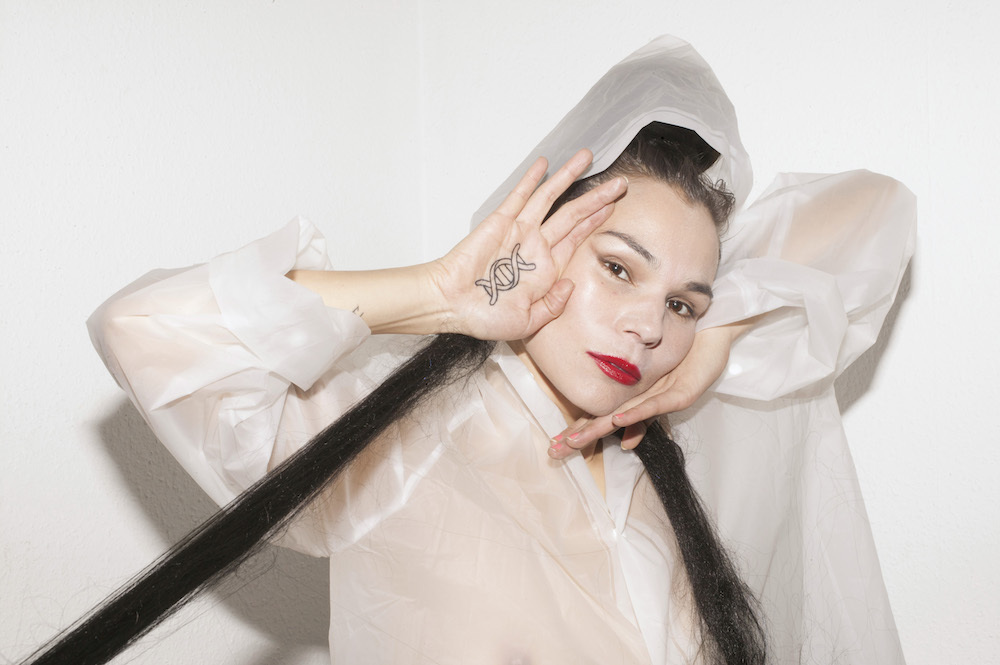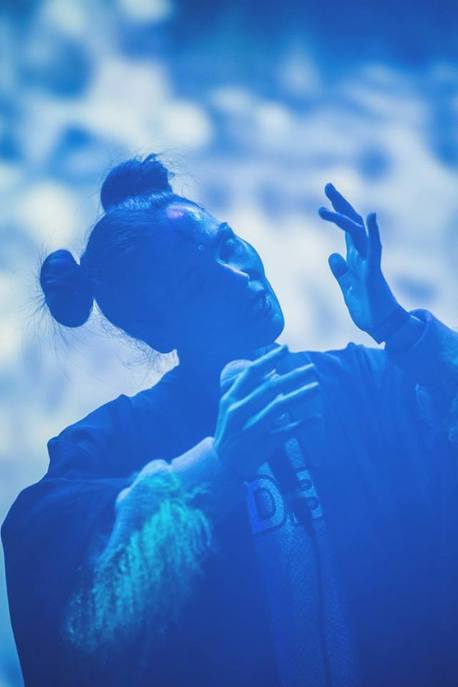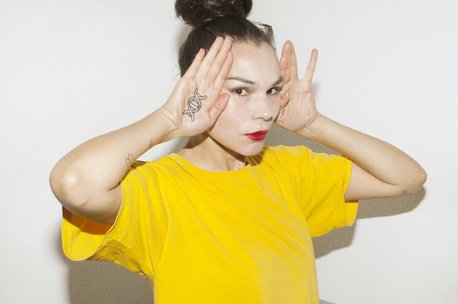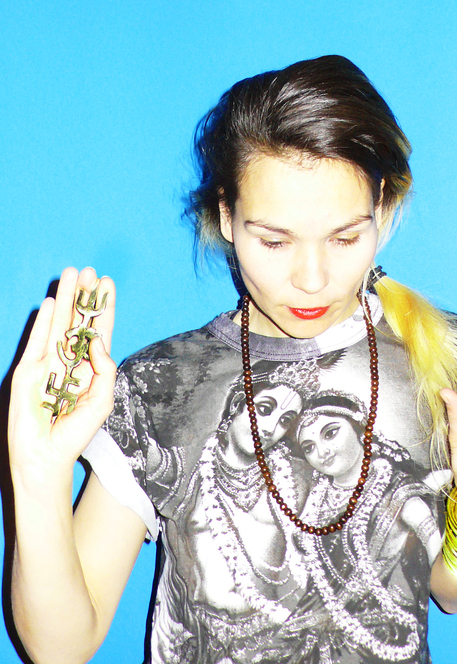Emile, how did you start collaborating with Aïsha?
Emile: I did press pictures for her at the very beginning, for her first album,
Of Matter and Spirit. After that we made a video game together:
ofmatterandspirit.org. You can go there and download it – it’s better to download than to play it online.
How did you think about doing a video game?
Emile: I learned to do video games by myself – my job is being a photographer. After I finished the first game I thought maybe it will be useful in videos. Later it became something more so we released it as a game on its own. The goal of this game is to show the process of meditation, the elevation of the kundalini – with different colors and chakras and meanings. For me the video game is the most synesthetic medium we have right now. You have music, images, the physical space, the interaction with the spectator. Unlike being in a cinema, within a video-game you can act and live something.
Aïsha: The thing is we don’t consider the audience as passive, but as active.
Emile: The game engine is also very useful for VGing – to react and to create space, also to blur the images we are so used to see.
Aïsha: Can you imagine, back then the shamans and the prophets only had their voice. We have video games, electronics, voice – people who understand that can induce transcendence. I think people underestimated the potential of frequency in music and they are just thinking it’s a casual thing: it’s not casual, it’s transformative – and at DNA level. I think advertising in the '90s and '00s understood how music was subliminal, and I’m quite sure they were conditioning the subliminal desire to get the new toothpaste or whatever they were selling. So now I think it’s time that the people take back these means. We are playing for an alternative crowd because not anyone is ready for that – there are people who like things being as they are. There are people who value their comfort more than anything and will realize when they are about to die that they were confused, or wrong. For those people, waking up is a right moment to do so. There are people in advertising using right now the imagery and vocabulary of ritual to sell you things – this is really fooling people who will really think that will belong to this by buying things. And it’s even worse that the big brands don’t even understand the meaning of magic, or ritual – and I’m a bit angry about that because I think that belongs to the outcasts and it belongs to the people who did the choice to renounce the comfort and the big machine so please ad people, stop that and use your words like: “success”, “gold” and don’t take our vocabulary.
Is there a chance that this would make some people interested about the actual subject and not buy the products?
Aïsha: Maybe it can work this way as well, like the whole trend with veganism and conscious living can make people aware and have an impact. When I did the record
Aura for Everyone I thought of this, even if the knowledge of it is not conscious, it can have an impact.
I was wondering if the track on your new record, “Light Luxury” is about this as well.
Aïsha: You know, the etymology of luxury is very interesting, it’s “light” because in Latin “lux” means light. In our society we are substituting inner light with outer light, and my idea is to bring back the inner light because throughout your journey you need to rely on the inner light.
I think this takes us to the conclusion of the interview, my last question was what would be your advice to the people.
Aïsha: Stop praising outside of yourself. Praise inside because you have the power inside to transform your own self.
Emile: My advice would be to find your faults and make them your qualities.
A bit like the alchemy process, that your biggest weakness is your biggest strength.
Aisha: We are all imperfect so it’s about where you go through experimentation - and experimentation is knowledge any-way.
--
*main photo credits: Emile Barret





